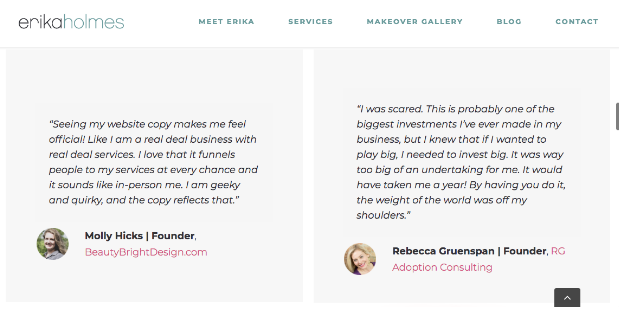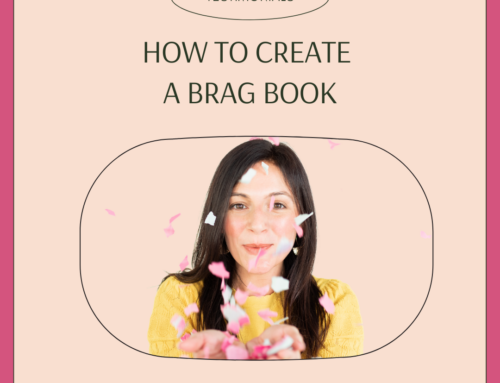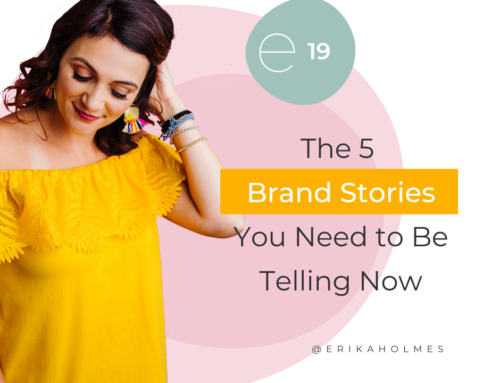Truth time. Not all Kate Hudson-Matthew McConaughey movies are created equal (I’m lookin’ at you, Fool’s Gold). And neither are all testimonials.
Glowing emails and love notes from clients work wonders on your ego (I actually keep a little file of these that I can go through when I need a little pick-me-up). But a few sentences about how awesome you are don’t necessarily add up to a great testimonial that will inspire your website visitors to take action.
WHY TESTIMONIALS MATTER
First, let’s quickly recap a few reasons why the right testimonials can make your website visitors feel that little glimmer of “maybe this is the right person/product/service for me.”
- Street cred. When it’s not just you bragging about yourself and listing your super sweet credentials, but other business owners vouching for your skills, it shows that A) this isn’t your first rodeo and B) other people have trusted you and you’ve gotten them results.
- Address objections. The right testimonial can help address whatever hesitations, concerns or doubts a potential client may have. For example, when hiring a copywriter, a lot of clients are worried about the final copy “not sounding like them.” You’ll notice that I overcome this objection via testimonial on my services page. Price is another obvious objection, one I address head-on on the same page.

- Showcase your range or your niche. While I specialize in website and email copy, I chose clients in three very different industries to show that I can write across a variety of subject matters and voices. This may look completely different for your business — maybe you focus on one very specific niche. In that case, use it to your advantage to show your extreme specialization.
KNOWING WHAT TO ASK
The key to a great testimonial that genuinely adds something to your website is specific details that tie back to what you’re trying to sell.
When you can get other people to talk about not just how wonderful you are or how great you are to work with, but how you helped solve their problem and what kind of results you can get … that’s when a testimonial can make a real impact versus just being another item you check off of your “website must-have” list.
The challenge is knowing what questions to ask to get the kind of testimonials you want. If you simply email your client and ask for a testimonial without giving them any direction, you’ll likely get back something fluffy (trust me, I learned this the hard way).
In this blog post, I’m sharing the exact process I use to get specific testimonials that help drive conversions.
Step 1: Choose featured clients strategically.
I ask all of my clients for testimonials; however, I was very strategic in choosing whom to feature on my website. I specifically chose to highlight the kind of business owners I want to work with (creative solopreneurs, personal brands, boutique brands) and the kind of projects I love working on (brand messaging, website, and email copy).
Step 2: Create a Google Doc Called “Testimonial Questions”
What measurable results does your work get your ideal clients? Create questions that will guide your clients in giving up the juicy deets.
Some of the results I help clients achieve are more intangible, such as giving them confidence in their copy or making them feel obsessed with their website content. The trick is balancing those with concrete specifics, like increased bookings, bounce and open rates, email subscribers, etc.
Here are the exact questions I ask my clients:
- What was the moment or trigger that made you realize or think you needed to hire a copywriter? In other words, what problem were you looking for me to solve?
- What convinced you that I was the right copywriter for you?
- What hesitations did you have about saying “yes” to my proposal?
- What changes have you noticed in your website traffic, email opt-in, conversions? Have you been getting more traffic, more booked calls, more email opt-ins? Note: I customize this question based on the project I’m working on.
- How does your new website copy make you feel?
- Have you ever told a friend/fellow colleague they should hire a copywriter vs. trying to DIY it? If so, what did you tell them? What did that sound like?
- Anything else you’d like to add?
I give my clients the option of writing their answers directly in the Google doc or recording their answers via voice memo.
One thing to keep in mind as you do this: You may need to slightly edit some answers for clarity or reply back asking for any specifics. But the beauty of this approach is you can use variations of their answers across different marketing materials versus just having two to three general sentences about what a kind soul you are.
Step 3: Give it time and follow up.
Immediately after we wrap a project, I email my clients and ask them if it would be OK to send them some testimonial questions in a few weeks, once they’ve had time to experience some results.
I wait around 14-30 days to send this Google document out. I also check in every 30-60 days throughout the year to get updates. (P.S. This is a great way to stay top of mind and create lifelong clients)
Now it’s your turn.
Is getting testimonials part of your client process? Right now, this very minute, do you have featured testimonials on your website?
If you have some rockin’ testimonials, are there any questions you’d add to this list? I’d love to hear ’em. Drop them in the comments or email me at erika@erikaholmes.com.
HAVE YOU TAKEN THE BRAND IT FACTOR QUIZ YET?
Find your brand’s celebrity personality in under 60 seconds.



